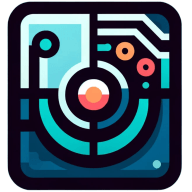The Role of Formal Education Vs. Practical Experience in Learning Programming
In today's fast-paced tech world, understanding the role of formal computer science education is more crucial than ever. This article explores how formal education provides a theoretical foundation and concludes with the importance of committing to lifelong learning. With a total of eight insightful answers, discover how practical experience complements formal education and why a balanced approach enhances programming skills.
- Formal Education Provides Theoretical Foundation
- Practical Experience Complements Formal Education
- Balanced Approach Enhances Programming Skills
- Formal Education Accelerates Skill Development
- Hands-On Experience Reveals Practical Gaps
- Tailor Learning to Individual Strengths
- Adapt Learning Focus Over Career
- Commit to Lifelong Learning
Formal Education Provides Theoretical Foundation
In my opinion, formal computer science education plays a foundational role in learning programming languages, but it's only one piece of the puzzle. A structured education gives you the theoretical understanding of core principles—like algorithms, data structures, and computational theory—that serve as the backbone for any programming language. At Software House, I've seen how this theoretical knowledge helps developers think critically, solve complex problems, and write efficient code. It provides a framework for understanding not just how to code, but why certain approaches work better than others in different scenarios. This deep understanding becomes even more valuable as technology and languages evolve, allowing programmers to adapt more quickly.
However, practical experience and self-directed learning are equally critical. They teach you the application side of things—how to troubleshoot, work with real-world constraints, and stay current with rapidly evolving technologies. In our company, we've found that hands-on projects, experimentation, and continuous learning through real-world challenges help developers master new languages or frameworks much faster than traditional education alone. Self-learning encourages creativity and adaptability, which are crucial in software development. The best programmers, in my experience, blend the solid theoretical foundation of formal education with the practical, problem-solving mindset that comes from self-directed learning and real-world experience. Together, they create a well-rounded skill set.
Practical Experience Complements Formal Education
Formal computer science education provides a strong theoretical foundation that can improve a developer's understanding of programming languages. My journey began with a degree in computer engineering from the University of Colorado Boulder, which equipped me with an understanding of complex algorithms and systems architecture that has been invaluable in my career.
However, practical experience is just as critical. When I founded FusionAuth, the challenges of building a scalable, customizable platform for developers required hands-on problem-solving that no textbook could teach. It was through real-world application and self-directed learning that I developed solutions to meet the specific needs of our target market, like integrating with various deployment methods or customizing for developers' unique needs.
Combining both approaches provides the best of both worlds. Formal education offers a structured environment to learn the fundamentals, while practical experience allows you to apply those fundamentals in dynamic, real-world scenarios. When building CleanSpeak and later FusionAuth, the blend of both gave me the tools to innovate and address market demands effectively.
Balanced Approach Enhances Programming Skills
Formal computer science education plays a vital role in learning programming languages by providing a structured foundation in theoretical concepts, algorithms, and data structures. This academic framework helps students understand the underlying principles of programming, which can enhance their problem-solving skills and overall comprehension of how software works. However, practical experience and self-directed learning are equally important, as they allow individuals to apply their knowledge in real-world scenarios, fostering creativity and adaptability. While formal education often emphasizes a broad understanding of computer science, self-directed learning focuses on specific languages and technologies that are directly relevant to current industry demands. Together, they create a balanced approach; formal education equips students with critical thinking and a solid grounding, while practical experience and self-directed learning cultivate the hands-on skills necessary to thrive in a rapidly evolving tech landscape.

Formal Education Accelerates Skill Development
Formal education lays down strong foundations, enabling learners to grasp complex programming concepts quickly and effectively. By understanding the theoretical underpinnings, students can more easily navigate and adapt to various programming challenges. This accelerated skill development is crucial in an ever-evolving technological landscape.
Thus, one should endeavor to gain a solid academic foundation. Pursue further education to strengthen these crucial skills.
Hands-On Experience Reveals Practical Gaps
Hands-on experience in programming often uncovers the practical limitations and gaps that formal education might miss. Real-world problem-solving pushes learners to apply their theoretical knowledge in innovative ways. This practical understanding enhances adaptability and readiness for unexpected challenges.
Therefore, it's essential to engage in practical projects actively. Embrace opportunities for real-world problem solving.
Tailor Learning to Individual Strengths
Different individuals have varied learning styles and goals, meaning a one-size-fits-all approach is not effective. Some may excel with a formal education background, while others thrive with hands-on, practical experience. Tailoring the learning pathway to meet these unique strengths can optimize success in programming.
It's important to recognize and embrace these personal learning preferences. Seek learning methods that align with personal strengths and career aspirations.
Adapt Learning Focus Over Career
As one progresses through their career, the balance between theory and practice shifts dynamically. At earlier stages, formal education might dominate, but practical experience gains prominence over time. Recognizing and adapting to these shifts is crucial for sustained growth and competency in programming.
Evaluating where you stand and adjusting your focus accordingly is vital. Continuously assess and adapt your learning strategy as your career evolves.
Commit to Lifelong Learning
With rapid technological advancements, both formal education and practical experience require ongoing updates. Staying current with the latest trends, tools, and programming languages is essential for remaining relevant and effective in the field. This means committing to lifelong learning and seeking out new knowledge continuously.
Keeping skills sharp and up-to-date is a continuous process. Make a commitment to continual learning and self-improvement in both domains.



